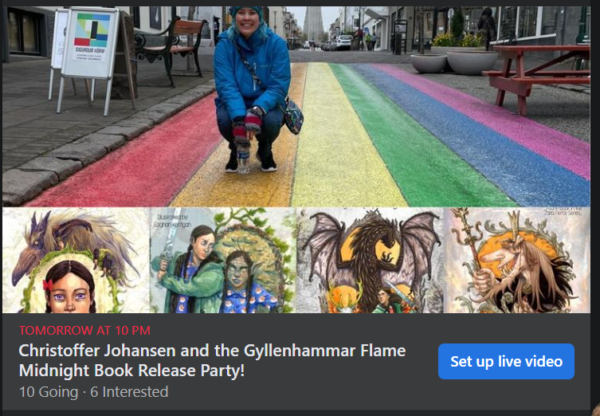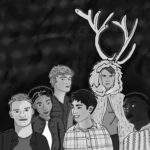Keeping up with good habits and documenting my writing sessions.
2024-07-07: Wrote 1000 words today. Book is at 47K and nearing the end of Ch 10.
2024-07-06: 1200 words today, nearly 700 of them a ballad the Stag Lord sings.
2024-07-04: 750 words today. I am grateful to break the dry spell again and that things are flowing.
2024-06-11: I was sucked into the void of my author website due to some bad plugins making it behave like it was on dial up internet and exposing debug information to the world. Yikes. Tried to fix the issue and keep the plugins. Didn’t work. Got rid of them. Site runs great again
2024-06-08: First time writing in a while 600 words and counting I’m going to keep working on the book today and see how far I get.
2024-05-04: Finished chapter 9 of book 9. Onto chapter 10!
Edit: This is where some fun pants-ing comes into play because someone showed up at the end of the chapter carrying something and I have no idea what they have on them, but we’re (the characters and me) about to find out together.
2024-04-24: 519 words and I named some new animals in the books. ❤ That was fun! I should be one or two writing sessions from the end of this chapter. Hurray!
2024-04-21: 500 words for 42.5K in the book. First time in a month getting back to it. I put on slow tv featuring aerial views of Norway (terrible music, will need to use my writing playlist next time). Proud of myself for breaking the slump.
2024-03-04: 600 words tonight. 3800 words in chapter 9. 42K total in book. Got to keep remembering potatoes, potatoes, potatoes.
2024-03-03: 700+ words tonight. 41K+ in the book. 3200 words in chapter 9 so far. I used a timer again. That’s been super useful recently so I will keep using a timer as long as it helps.
2024-03-02: 800+ words today, 2500 words in chapter 9, 40K+ overall. I feel a bit like a lawyer today arguing to sides of a situation in the books and presenting a burden of proof. LOL
2024-02-27: I made my 500 word count for the day and managed to go a little over. I also used a timer again to help me do this sprint session. I am at a good part in the story to pause and reflect on how I want the next few pages to go.
2024-02-26: I used a timer today to get me started when I found myself wanting to goof off instead of write. I set it for 30 minutes and did focus writing. I wrote 500 words and brought chapter 9 to just over 1K. That’s pretty good for a Monday after a long day in the office. Book is at 39K
2024-02-25: Another 300+ words. Every little bit counts. I was happy to write this conversation today because Zaria tells Christoffer something important.






